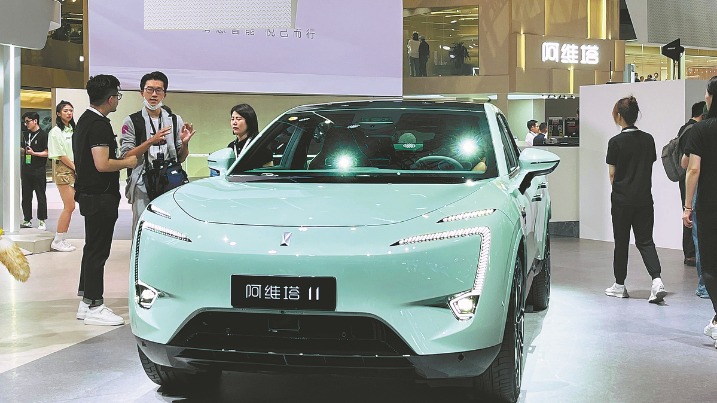China Unveils $72.3 Billion Tax Incentive to Accelerate Green Car Adoption
In a significant move to stimulate demand and propel the growth of electric vehicles (EVs) and other environmentally friendly cars, China announced a groundbreaking tax break package worth 520 billion yuan ($72.3 billion) over four years. This substantial financial support represents China’s most substantial initiative to date in the pursuit of boosting the automotive industry amid slower sales growth.
The deceleration in auto sales growth within the world’s largest automotive market has raised concerns about China’s overall economic progress. As a result, the government’s commitment to providing financial assistance was anticipated, given their earlier pledge to advance the industry. However, the unveiling of this tax break package exceeded market expectations, resulting in a significant surge in share prices for major automakers.
Cui Dongshu, the Secretary-General of the China Passenger Car Association, remarked that the extension of the tax breaks for an additional four years went beyond what was predicted, eliciting a positive response from industry experts and market participants alike.

The comprehensive tax incentive package is specifically designed to promote the adoption of green vehicles and accelerate their integration into the mainstream market. The allocation of 520 billion yuan over four years demonstrates the Chinese government’s unwavering commitment to supporting the development and manufacturing of electric and eco-friendly cars.
By implementing this tax break, China aims to address several critical objectives. Firstly, it seeks to combat the environmental challenges posed by carbon emissions and pollution caused by traditional combustion engine vehicles. Encouraging the transition to electric and green cars is viewed as a crucial step in reducing China’s carbon footprint and mitigating the adverse effects of climate change.
Additionally, the tax break package serves as a strategic measure to boost consumer demand for EVs and other green vehicles. Lowering the financial barriers associated with purchasing these cars is expected to stimulate sales, making them more accessible and affordable to a broader range of consumers. The resulting increase in demand will, in turn, propel the growth of the electric vehicle industry, fostering innovation, job creation, and technological advancements.
China’s unwavering commitment to establishing itself as a global leader in the electric vehicle market is evident in the scale and ambition of this tax break package. It aligns with the nation’s long-term vision of transitioning towards sustainable transportation and reducing reliance on fossil fuels.
The tax incentives are anticipated to have far-reaching implications for the automotive industry, both domestically and internationally. Chinese automakers, in particular, are poised to benefit significantly from the increased demand for EVs and green vehicles. Moreover, this initiative is expected to drive competition and innovation within the industry, as automakers strive to capture a larger share of the growing market.
In conclusion, China’s introduction of a monumental $72.3 billion tax break package for green cars represents a bold and strategic move to propel the adoption of electric and environmentally friendly vehicles. By stimulating consumer demand, reducing financial barriers, and promoting sustainable transportation, China is positioning itself as a trailblazer in the global automotive industry. This initiative holds immense potential for both the environment and the economy, ultimately driving the transition towards a greener and more sustainable future.

